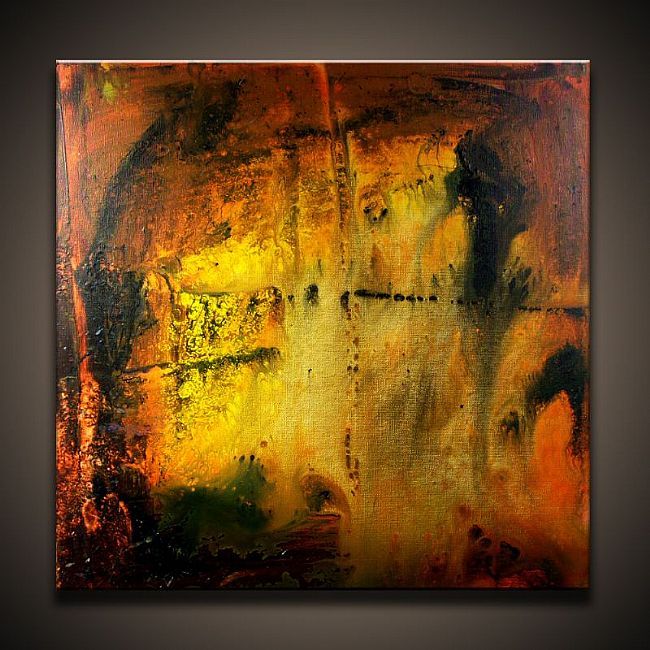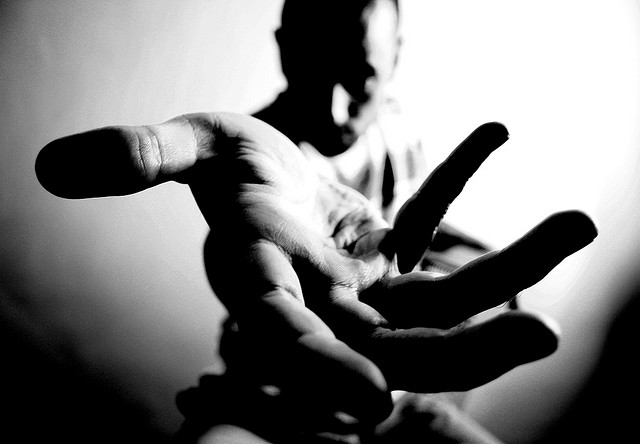Serendip is an independent site partnering with faculty at multiple colleges and universities around the world. Happy exploring!
Notes Towards Week 13 (Nov. 29): "The Other Hand"
"The Origin of Love" (from Kim K)

"On the Other Hand," from a website of Self-Representing Artists
I. Kaye: Coursekeeping
thanks to Katie Randall and Kammy --plus someshine!--for snacks;
next week lgleysteen and aybala50
* @ 8 p.m. this Sunday, your third 4-pp. "web event" is due
On p. 19, Paul Farmer writes, "Pathologies of Power suggests
that a broad biosocial approach, when anchored in careful examination
of specific cases, permits a critical reassessment of conventional views
of human rights"; later he says that "analysis must be geographically broad,
historically deep"--both of these observations link nicely to what we're
asking you to do for your web event 3:
explore the possibility of building some sort of "right relationship"
w/ reference to a concrete contemporary problem that interests you
(this could be a new relationship between theory and action, or
what Butler calls a "queer alliance" among unaffliated identity groups, or....?)
Mawtyrs might confer w/ Anne, 'Fords w/ Kaye
* let's do a call-out brainstorm--name some possibilities
*AFTER that project is in, you need to come in for final conferences
(w/ the one of us you didn't see in September); you must have this
conference before you submit your final work for the course
* we'll have sign-up sheets next week, when we'll also review all
requirements, including a 12-pp. web event, expanding on one of your
earlier projects, and a final e-portfolio (both due by 12:30 p.m., Fri, Dec. 16)
* our last class (!) is scheduled for next Tuesday
do we want/can we move it to this Sunday, or next Wednesday or Thursday--
so folks can go hear Paul Farmer speak @ the Free Library?
we'll put up options on the blackboard; please vote during break
* Anne: what we have planned for our last night together is the "epilogue" for our play:
Moving On-and-Out From Here with Final Performances/A Teach-In
[Amophrast, aybala50, KatieRandall, leamirella, rachelr -- want to tell your classmates
what's involved in this precarious, performative, playful, potentive final "exam"/opportunity
to reflect about --and celebrate!--what we've learned, that you want to teach the rest of us?]
warm up:
*think back through the prologue and three acts of this course,
identify what stands out to you from our sections on disability, biology and activism--
remember? Riki Wilchins, McDermott and Varenne, Eli Clare, Joan Roughgarden, Beck Jordan-Young
write down an idea, a question, a topic that is still present, has an emotional resonance,
felt catalytic to to you, or that returns to you now--and post it up WITH YOUR NAME
during break, revisit this board, to see who else you might want to partner w/...
by Friday morning post your groups in our on-line forum
we will also post there, to inspire you, in terms of form, some workshop material
from both Theater of the Oppressed and Theater of Witness
In response to Gavi's query,
So then how does a group of listeners become a group of actors?
Kaye posted about "the people's microphone":
...in many ways speaks/listens to this supposed polarity between those who call and
those who listen. By parsing ideas into manageable speech bites, individuals and
groups can then do "the calling independently and in unison." By hearing and re-speaking
what we've heard, we can broadcast ideas to larger groups. I wonder, though, if these
speech bites ever change as they are passed through a crowd, like in the children's
game of "telephone"? I think it would be wonderful to set up a system in which speech
bites have the potential to evolve as other individuals and groups listen and re-speak?
Might we be able to do this in our class?
from "Image Theater Into Action: A Manual for Incorporating
Theater of the Oppressed into Cooperative Conversation":
fluidity between spectator and actor .... theater where everyone was a
spect-actor, having the ability to both watch and perform any given piece (p. 5).
The basic idea is this: that theater is closer to concrete action than mere words ...
a physical, kinesthetic rehearsal of doing is closer to the actual doing than a
theoretical discussion .... words are excellent vehicles for transporting ideas. But
they must be supplemented with actions ... if we wish to be effective in the actual
performance of things (p. 7).
The games and techniques move people away from the language of "I" and "me,"
and into the langauge of "us" and "we" (p. 8).
The joker is a facilitator who enables others to act, and at the same time a
difficultator that challenges the participants to go beyond--and to expand--
their comfort zones (p. 11).
questions about any of this?
II. Kaye: Little Bee/The Other Hand
Shlomo: reading Little Bee is like having an inflating balloon on top of my breastbone ... I am really nervous to discuss it in class .... I often feel like our classroom is the kingdom of overanalysis .... I hope that we will take a different course with Little Bee .... let's please let Little Bee speak for itself.
Let's do that, by sharing quotes in a read-around,
using a center chair for people to move to before speaking.
Anne: Many of you had strong, viseral experiences of reading this novel, which raises multiple ethical questions for us all:
rachelr: I found so many ways to tie in so much of what we have been talking about: bodily presence, precarity, entanglement, power, home .... It was thought provoking, powerful, and emotional. I felt tense reading it, and could almost feel my heart rate increasing.
chelseam: As residents of a first world country and participants in its democracy and economy, what are our responsibilities to poverty stricken people of other nations and our own? How do we effectively target structures, instead of merely attempting to treat the symptoms caused by these structures?
Katie Randall: Little Bee ... was emotionally hard to read, and left me thinking what now? It dealt with raw emotion, mostly very well, but part of me resents having my heartstrings pulled like that …. the ending just didn't satisfy me …. I wanted to know what Little Bee would do, not what others would do for her or about her.
Chris Cleave said that the book was about trusting you, as readers, to make sense of the story--
The True Story Behind My New Novel:
After nearly two years with this project I realised that the strongest perspective would be a dual one. This is a story of two worlds: the developed and the developing, and of the mutual incomprehension that sometimes dooms them to antagonism. So by taking one woman from each side of the divide, and investing each with a compulsion to understand the other, I was able to let the story unpack itself in the mind of the reader. This was a huge breakthrough for me. One shouldn’t underestimate the role of the reader in this novel. I wanted to write a story that was never made fully explicit; which relied on the reader’s interpretation of the characters’ dialogue. Once you trust the reader with the story, the writing is really fun to do.
The perspective is of course not just dual, but multiple:
what characters would you like to understand better?
whose past or future life would you like to know more about?
(write these names on the board)
III. working break (don't forget to review the post-it notes,
begin your search for teaching/performing partners!)
IV. Kaye: come back and stand by the character you want to know better
in those small groups, discuss
* how were they precarious?
* what were they performing?
* what is their perspective on the world?
* what enabled (or limited) their playfulness?
* what is their potential for agency?
Anne: Little Bee picks up on what Judith Butler asked us to think about
* our global obligations, near and far
* our capacity to respond to suffering @ a distance
* our ethical obligation to those we never choose,
in languages we don't understand
* our response when something impinges on us,
without our being able to prepare for it.
Kaye: the novel also picks up on what Paul Farmer said, that
* the conditions of the poor are the result of human-made (****and continually performed****) structural violence
* "unless we agree that the world should not be the way it is…there is no point of contact,
because the world that is satisfying to us is the same world that is utterly devastating to them"
* privileged people, implicated in structural violence, feel indignation, humility, penitence
* critical to effective social justice work is redistribution (****of what???*****), since
* what happens to the poor is never divorced from actions of the powerful;
* control of lives is related to political, legal structures in which lives are enmeshed (****entangled****)
* we are called to think locally and globally and respond to both levels (****response-ability****)
Anne: But this time the representation of these issues takes the form of a novel.
jfwright: the best that I can do for next time is to be more inquisitive of the nature of the production of representations: who is represented? Do we know who is doing the 'representing'? It matters….
as I read through the book, I'll be paying attention to the ways in which dynamics of power play out.
Let's play these out:
What do your characters have to say to us?
What might they ask us to do?
How might we respond?
leamirella: Are we really entangled? Thinking of us as entangled seems, to me, somewhat of safety net that lets us rely on each other rather than force us to really be individuals....
----------
Sarah has this to say to Lawrence about "developing as a person" in a "developing world":
"It is possible to do good things with an imperfect situation. God knows, I should know."
I blinked back tears. "Compromise, eh? Isn't it sad, growing up? You start off like my Charlie. You start off thinking you can kil all the baddies and save the world. Then you get a little bit older, maybe Little Bee's age, and you realize that some of the world's badness is inside you, that maybe you're a part of it. And then you get a little bit older still, and a bit more comfortalbe, and you start wondering whether that badness you've seen in yourself is really all that bad at all. You start talking about ten percent."
"Maybe that's just developing as a person, Sarah."
I sighed, and looked out at Little Bee.
"Well," I said, Maybe this is a developing world" (Little Bee, end of Chapter 8, p. 209).
-----
(if there's time: end-of-semester evals)



